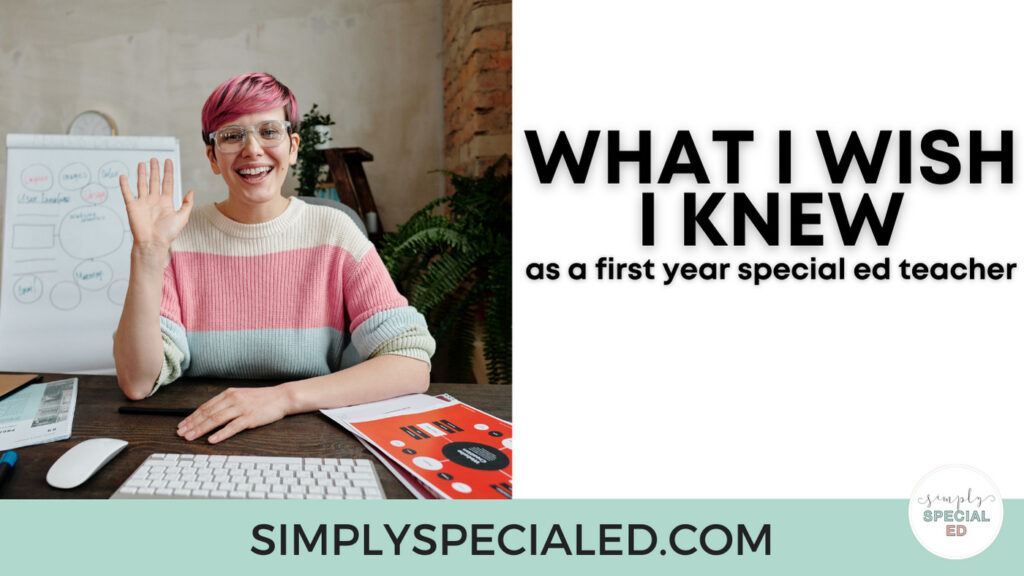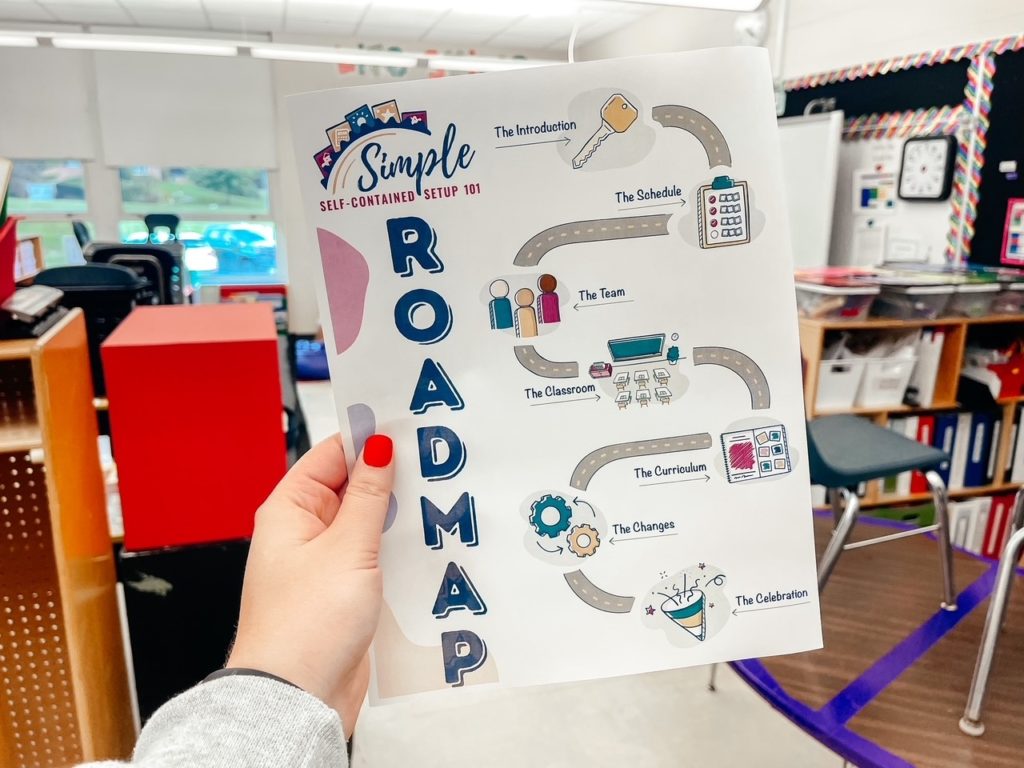
As a first year special education teacher… I was stressed. I asked veteran special education teachers what they wish they knew when they first started… and they gave some MUST READ advice!

“I wish someone would have told me that it is okay not to have it all figured out in year one. I spent my entire first year of teaching comparing myself to veteran teachers and beating myself up for not having a perfect classroom and structure. My best advice for first year teachers is to start by creating a morning routine and focus on routines and structure. Start your day with a predictable, routine activity where you can teach the structure of your classroom. I promise, the rest will follow. Your schedule won’t be perfect on day 1, but if you start your day with some structure and routine, you’ll be able to build on it and create the schedule you want. You’ve got this!” – Whitney

“My first year as a speech-language pathologist was very stressful. The biggest challenge I faced was the IEP schedule. I wish I had known that I could schedule my speech-only IEPs in advance. If I could go back in time I would have added all of my IEPs to the calendar at the beginning of the year and set up google reminders to send out meeting notices 2 weeks in advance, so I never would have been caught off guard because I forgot to schedule someone.” – Alinda, SLP

“There are many things I wish I knew as a first year teacher, but the most important thing you can learn before you begin your teaching career is not going to be taught in any education program. When you begin teaching, whether it is your first year or 20th, make sure you have ways to engage in self-care and protect your energy. Our job is a fulfilling, but challenging one. So many teachers experience burnout. Having a self-care activity or routine can help you manage your stress and anxiety. Read more about how I use reiki as self-care here: https://www.simplyspecialed.com/reiki-for-self-care/” – Arielle, BCBA

“As a first-year therapist, I wish I knew that sometimes less is more. It is easy to get overwhelmed by a caseload of 65+ students [who you are meeting for the first time!]. While OT is very individualized, try not to get caught in the trap thinking that you need a completely new activity for each of your students every day. How can you upgrade or downgrade a set of maybe 3 activities a week to meet the individualized interests/strengths, needs and goals for all your students? How can you use your OT skillset to support what the student is already doing in class? Coming from a pediatric outpatient clinic setting, I was used to having a ton of materials, games, and equipment at my fingertips. As a new therapist, you haven’t had time to build up your personal “stash” yet! How can you use simple materials (i.e. pencils, coins, empty containers, boxes, and other household materials) to target specific skills? This will make it easier to carryover activities in the home setting as well!”- Allison, OT
“It’s 100% okay to not have it together. Your classroom does not have to be Pinterest worthy and your lesson plans don’t have to be perfect.” – Stephanie, Multiple Disabilities Teacher

“RELATIONSHIPS first. Spend your time getting to know each of your unique students and you will understand their needs and build their trust more than ever before.” – Alyssa, Simply Special Ed

The final thing I want all new special ed teachers to know is—– you DO NOT have to do this alone! There is a community of self-contained teachers waiting for you here on facebook.
and there is a course Simple Self-Contained Setup 101® made just for you to learn all the things for a stress free year and beyond. Join the waitlist to Simple Self-Contained Setup 101® here.


Learn more about Simple Self-Contained Setup 101®: the bingeable online course made specifically for self-contained special educators! Reduce overwhelm and anxiety during back-to-school season with the proven methods I teach you in this course! Click here to learn more and join the waitlist now!




